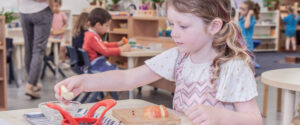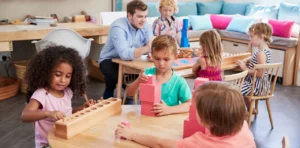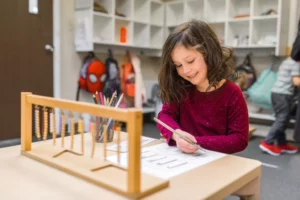Introduction to Green Classrooms
In the constantly evolving field of education, we are witnessing a significant shift toward outdoor learning environments. Embracing the Green Classroom is not just a trend but a vital educational philosophy grounded in empirical evidence and child psychology. This approach nurtures a harmonious relationship between nature, learning, and child development, providing unparalleled benefits.
In today’s dynamic and rapidly shifting educational landscape, the concept of outdoor learning is gaining unprecedented momentum. Embracing the Green Classroom is more than a passing trend; it’s a well-founded educational paradigm rooted in thorough research, child psychology, and environmental stewardship.
The Philosophical Roots of Outdoor Learning
The integration of nature into the learning process isn’t a new concept. The ancient Greeks, renowned scholars, and philosophers understood the value of the natural world in stimulating intellectual growth. We recognize the importance of bringing this philosophy into contemporary education.
Outdoor learning is not just a recent trend or novel educational approach; it has deep philosophical roots that extend across various traditions, schools of thought, and historical periods. Understanding these underpinnings provides vital context and insight into the value and significance of outdoor learning.
A Return to Nature’s Wisdom
In the world of digital distractions and urban landscapes, we believe in reconnecting children with the earth. Outdoor learning offers unique opportunities to foster creativity, curiosity, and resilience, paving the way for holistic growth. Jean-Jacques Rousseau, in his work “Emile, or On Education,” advocated for a child-centered approach where the child learns directly from nature. He argued that children should grow and learn at their own pace, guided by their curiosity and interaction with the environment. This was a radical departure from the formal education of his time.
The Practical Applications: How We Integrate Nature in Learning
Creating Nature-Inspired Classrooms
At the core of our approach lies the creation of nature-inspired classrooms. These environments stimulate a child’s senses and cultivate a deep connection with the natural world. Some schools and educators develop a nature-based curriculum where learning goals are tied to natural phenomena and seasonal changes. This approach makes the learning process more relatable and contextual, helping students understand the connection between what they learn and the world around them.
Outdoor Expeditions and Exploration
We organize regular outdoor expeditions, allowing children to explore their surroundings. These adventures foster a sense of discovery and sharpen problem-solving skills. Utilizing outdoor spaces for teaching provides students with an immersive learning environment. Lessons conducted in gardens, parks, or natural landscapes allow students to engage with the subject matter in tangible ways. Science, art, literature, and even mathematics can be explored with nature as a backdrop.
The Role of Educators in the Green Classroom
The responsibility falls on teachers to guide and nurture this connection between the child and nature. We emphasize continuous training to ensure that our educators can create dynamic, responsive outdoor learning experiences. Hands-on experiences like planting, exploring ecosystems, or observing weather patterns help solidify theoretical knowledge. Students learn by doing, and the natural environment provides ample opportunities for exploration and discovery
The Impact of Outdoor Learning: Tangible Benefits
Enhanced Cognitive Development
Outdoor learning is not merely an enjoyable experience but a scientifically-backed method to boost cognitive function. Studies show that children exposed to green classrooms demonstrate improved concentration, memory, and analytical skills. Outdoor learning engages the senses and encourages critical thinking, problem-solving, and creativity. Natural settings provide stimuli that challenge children to think and learn in diverse ways, aiding cognitive growth.
Emotional Well-Being and Social Growth
Incorporating outdoor learning into educational curriculums offers a multitude of benefits for children’s overall development. Not only does it contribute to cognitive development, but it also has a positive impact on their emotional well-being and social skills. Nature-based activities provide a unique opportunity for children to learn and develop key qualities such as empathy, cooperation, and effective communication. The outdoor environment promotes teamwork, collaboration, and communication, while group activities and outdoor play help children develop leadership, empathy, and negotiation skills. Additionally, studies have shown that connecting with nature can be therapeutic, reducing stress and anxiety levels in children. All in all, the inclusion of outdoor learning in educational programs provides an excellent platform for children to develop a well-rounded skill set, essential for their future success.
Challenges and Solutions in Implementing the Green Classroom
While outdoor learning offers many advantages, it can also come with its share of obstacles. But rest assured, we are committed to overcoming these challenges. We do so by planning meticulously, collaborating closely with parents, and adhering to rigorous safety protocols. Outdoor learning is a highly effective means of promoting interdisciplinary education in a dynamic and flexible setting. By integrating subjects such as science, art, history, and math, students can enjoy a well-rounded and engaging educational experience. tory, and math, students can enjoy a well-rounded and engaging educational experience.
Conclusion: A New Era in Education
The Green Classroom movement is not just a temporary trend, but a revolution in education. We are proud to be leading this movement, recognizing that outdoor learning is a crucial step in shaping the future of our children. By incorporating nature into the classroom, we offer a well-rounded education that caters to their natural curiosity and amazement.
Education is evolving, and we are excited to be a part of it. The 21st century requires a more responsive, flexible, and innovative approach to learning. This approach emphasizes creativity, collaboration, empathy, and resilience, aiming to produce not just knowledgeable students but responsible, compassionate, and engaged citizens who can positively contribute to society. This vision of education resonates with our current times and looks forward to the future with optimism and a clear purpose.









